Our Partners
Calabasas Elementary School
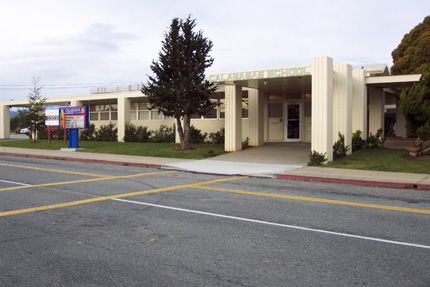 Calabasas Elementary School is the site of two of our on going projects, the Calabasas Community Garden and our Afterschool Program Internship in the Discovery Garden. Calabasas Elementary is an under-resourced school located in Watsonville. Many families at Calabasas Elementary are migrant farmworkers (highest proportion in the Pajaro Valley Unified School District), speak primarily Spanish at home, and qualify for the Second Harvest Food Bank's Food for Children program (designed to address childhood malnourishment, hunger and obesity). In 2012, Professor Lu and a group of UCSC students began collaborating with Calabasas to revitalize a teaching space called the Children’s Discovery Garden. During the academic year, groups of schoolchildren learn about nutrition, science, and teamwork during an after-school, garden-based education program there. The presence of UCSC undergraduates is vital, as the after-school program is significantly understaffed and the children very eager for adult interaction and mentorship.
Calabasas Elementary School is the site of two of our on going projects, the Calabasas Community Garden and our Afterschool Program Internship in the Discovery Garden. Calabasas Elementary is an under-resourced school located in Watsonville. Many families at Calabasas Elementary are migrant farmworkers (highest proportion in the Pajaro Valley Unified School District), speak primarily Spanish at home, and qualify for the Second Harvest Food Bank's Food for Children program (designed to address childhood malnourishment, hunger and obesity). In 2012, Professor Lu and a group of UCSC students began collaborating with Calabasas to revitalize a teaching space called the Children’s Discovery Garden. During the academic year, groups of schoolchildren learn about nutrition, science, and teamwork during an after-school, garden-based education program there. The presence of UCSC undergraduates is vital, as the after-school program is significantly understaffed and the children very eager for adult interaction and mentorship.
Community Action Board (CAB)
 The Community Action Board of Santa Cruz County's mission is to partner with the community to eliminate poverty and create social change through advocacy and essential services.
The Community Action Board of Santa Cruz County's mission is to partner with the community to eliminate poverty and create social change through advocacy and essential services.
El Pajaro Community Development Corporation & Kitchen Incubator
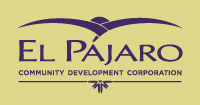 El Pajaro Community Development Corporation promotes the development micro-businesses by helping low-income minority entrepreneurs in counties Santa Cruz, San Benito and Monterey. We assist in the creation economic opportunities in minority communities with limited resources, by providing instruction, bilingual/bicultural business training, business incubation, professional consulting and coaching. Our programs and partnerships help micro-entrepreneurs succeed economically.
El Pajaro Community Development Corporation promotes the development micro-businesses by helping low-income minority entrepreneurs in counties Santa Cruz, San Benito and Monterey. We assist in the creation economic opportunities in minority communities with limited resources, by providing instruction, bilingual/bicultural business training, business incubation, professional consulting and coaching. Our programs and partnerships help micro-entrepreneurs succeed economically.
People of Color Sustainability Collective
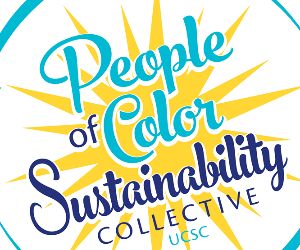 POCSC's mission is to make UCSC a leader not just in mainstream sustainability, but also environmental justice, in recognition of our changing demographics and pressing ecological challenges. They work to accomplish this by: Raising awareness about the contributions that people of color have made to the environmental sustainability movement in general and at UCSC in particular; Reexamining the definition and values of the sustainability movement to identify how it can be more inclusive of all underrepresented populations; Creating critical dialogue about environmental justice through student discussion spaces, student of color caucuses, social media awareness campaigns, workshops, and speaker presentations
POCSC's mission is to make UCSC a leader not just in mainstream sustainability, but also environmental justice, in recognition of our changing demographics and pressing ecological challenges. They work to accomplish this by: Raising awareness about the contributions that people of color have made to the environmental sustainability movement in general and at UCSC in particular; Reexamining the definition and values of the sustainability movement to identify how it can be more inclusive of all underrepresented populations; Creating critical dialogue about environmental justice through student discussion spaces, student of color caucuses, social media awareness campaigns, workshops, and speaker presentations
Blum Center
 The Blum Center's mission is to illuminate the causes and consequences of poverty and demonstrates how participatory governance and effective policies and programs can alleviate economic hardship. It is not about fixing people, it is about fixing systems.
The Blum Center's mission is to illuminate the causes and consequences of poverty and demonstrates how participatory governance and effective policies and programs can alleviate economic hardship. It is not about fixing people, it is about fixing systems.
Co-Corricular Programs
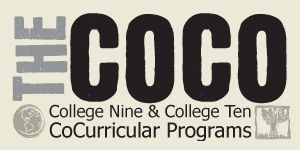 The Coco provides learning opportunities that explore International and Global Perspectives. We implement a range of events, groups, retreats, and classes as well as hands-on opportunities for learning and taking action on important local and global issues.
The Coco provides learning opportunities that explore International and Global Perspectives. We implement a range of events, groups, retreats, and classes as well as hands-on opportunities for learning and taking action on important local and global issues.
Center for Labor Studies
 Center for Labor Studies is dedicated to the study of working people, the labor movement, and the challenge of the broader global economy as it impacts the working people of California and beyond. Through research, conferences, workshops, public lectures, and a range of guest speakers, we focus, in particular, on the relationship between the labor movement (broadly defined), social movements, and democratic practices; on gender, race, and ethnic dynamics; and on labor activism in international context. They also address a wide spectrum of questions related to the nature of work, employment, and working people’s lives in the U.S. and beyond. Our goal is to serve UCSC students, staff, and faculty while reaching out to the broader community of the Central Coast of California and beyond.
Center for Labor Studies is dedicated to the study of working people, the labor movement, and the challenge of the broader global economy as it impacts the working people of California and beyond. Through research, conferences, workshops, public lectures, and a range of guest speakers, we focus, in particular, on the relationship between the labor movement (broadly defined), social movements, and democratic practices; on gender, race, and ethnic dynamics; and on labor activism in international context. They also address a wide spectrum of questions related to the nature of work, employment, and working people’s lives in the U.S. and beyond. Our goal is to serve UCSC students, staff, and faculty while reaching out to the broader community of the Central Coast of California and beyond.
Ethnic Resource Centers
- The ERCs comprise of the four Ethnic Resource Centers: African American Resource and Cultural Center, American Indian Resource Center, Asian American / Pacific Islander Resource Center, and “El Centro” the Chicano Latino Resource Center; the Cantú Queer Center, and the Women's Center. Each of the 6 resource centers offer students various services through academic, cultural and community support activities. Throughout the year, the RCs host programs and events that connect students, staff, faculty and community members in both social and professional, academic settings. Students have ample opportunities to network and create community spaces, to engage in stimulating and critical dialogue, and to find connections in hope of building a positive and empowering space for all communities.
Everett Program
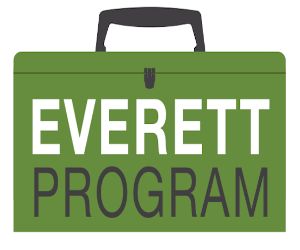 The Everett Program empowers students to work in solidarity with community based organizations who are already fighting the good fight and help them do their work better. Through long-term student projects and short-term Impactathons, UCSC students at the Everett Program promote social justice and sustainability across the globe.
The Everett Program empowers students to work in solidarity with community based organizations who are already fighting the good fight and help them do their work better. Through long-term student projects and short-term Impactathons, UCSC students at the Everett Program promote social justice and sustainability across the globe.
The Sustainability Office
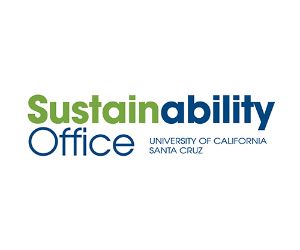 The Sustainability Office fosters a culture of sustainability at UCSC by actively engaging students, staff, faculty and community members through education, leadership development, institutional change and behavioral transformation. Goals include: Institutionalize sustainability; Improve environmental performance through the Campus Sustainability Plan and Climate Action Plan; Create centralized communication and promote successes; Promote a culture of inclusive sustainability; Integrate sustainability into the classroom.
The Sustainability Office fosters a culture of sustainability at UCSC by actively engaging students, staff, faculty and community members through education, leadership development, institutional change and behavioral transformation. Goals include: Institutionalize sustainability; Improve environmental performance through the Campus Sustainability Plan and Climate Action Plan; Create centralized communication and promote successes; Promote a culture of inclusive sustainability; Integrate sustainability into the classroom.
 Calabasas Elementary School is the site of two of our on going projects, the Calabasas Community Garden and our Afterschool Program Internship in the Discovery Garden. Calabasas Elementary is an under-resourced school located in Watsonville. Many families at Calabasas Elementary are migrant farmworkers (highest proportion in the Pajaro Valley Unified School District), speak primarily Spanish at home, and qualify for the Second Harvest Food Bank's Food for Children program (designed to address childhood malnourishment, hunger and obesity). In 2012, Professor Lu and a group of UCSC students began collaborating with Calabasas to revitalize a teaching space called the Children’s Discovery Garden. During the academic year, groups of schoolchildren learn about nutrition, science, and teamwork during an after-school, garden-based education program there. The presence of UCSC undergraduates is vital, as the after-school program is significantly understaffed and the children very eager for adult interaction and mentorship.
Calabasas Elementary School is the site of two of our on going projects, the Calabasas Community Garden and our Afterschool Program Internship in the Discovery Garden. Calabasas Elementary is an under-resourced school located in Watsonville. Many families at Calabasas Elementary are migrant farmworkers (highest proportion in the Pajaro Valley Unified School District), speak primarily Spanish at home, and qualify for the Second Harvest Food Bank's Food for Children program (designed to address childhood malnourishment, hunger and obesity). In 2012, Professor Lu and a group of UCSC students began collaborating with Calabasas to revitalize a teaching space called the Children’s Discovery Garden. During the academic year, groups of schoolchildren learn about nutrition, science, and teamwork during an after-school, garden-based education program there. The presence of UCSC undergraduates is vital, as the after-school program is significantly understaffed and the children very eager for adult interaction and mentorship. The Community Action Board of Santa Cruz County's mission is to partner with the community to eliminate poverty and create social change through advocacy and essential services.
The Community Action Board of Santa Cruz County's mission is to partner with the community to eliminate poverty and create social change through advocacy and essential services. El Pajaro Community Development Corporation promotes the development micro-businesses by helping low-income minority entrepreneurs in counties Santa Cruz, San Benito and Monterey. We assist in the creation economic opportunities in minority communities with limited resources, by providing instruction, bilingual/bicultural business training, business incubation, professional consulting and coaching. Our programs and partnerships help micro-entrepreneurs succeed economically.
El Pajaro Community Development Corporation promotes the development micro-businesses by helping low-income minority entrepreneurs in counties Santa Cruz, San Benito and Monterey. We assist in the creation economic opportunities in minority communities with limited resources, by providing instruction, bilingual/bicultural business training, business incubation, professional consulting and coaching. Our programs and partnerships help micro-entrepreneurs succeed economically. POCSC's mission is to make UCSC a leader not just in mainstream sustainability, but also environmental justice, in recognition of our changing demographics and pressing ecological challenges. They work to accomplish this by: Raising awareness about the contributions that people of color have made to the environmental sustainability movement in general and at UCSC in particular; Reexamining the definition and values of the sustainability movement to identify how it can be more inclusive of all underrepresented populations; Creating critical dialogue about environmental justice through student discussion spaces, student of color caucuses, social media awareness campaigns, workshops, and speaker presentations
POCSC's mission is to make UCSC a leader not just in mainstream sustainability, but also environmental justice, in recognition of our changing demographics and pressing ecological challenges. They work to accomplish this by: Raising awareness about the contributions that people of color have made to the environmental sustainability movement in general and at UCSC in particular; Reexamining the definition and values of the sustainability movement to identify how it can be more inclusive of all underrepresented populations; Creating critical dialogue about environmental justice through student discussion spaces, student of color caucuses, social media awareness campaigns, workshops, and speaker presentations The Blum Center's mission is to illuminate the causes and consequences of poverty and demonstrates how participatory governance and effective policies and programs can alleviate economic hardship. It is not about fixing people, it is about fixing systems.
The Blum Center's mission is to illuminate the causes and consequences of poverty and demonstrates how participatory governance and effective policies and programs can alleviate economic hardship. It is not about fixing people, it is about fixing systems. The Coco provides learning opportunities that explore International and Global Perspectives. We implement a range of events, groups, retreats, and classes as well as hands-on opportunities for learning and taking action on important local and global issues.
The Coco provides learning opportunities that explore International and Global Perspectives. We implement a range of events, groups, retreats, and classes as well as hands-on opportunities for learning and taking action on important local and global issues. Center for Labor Studies is dedicated to the study of working people, the labor movement, and the challenge of the broader global economy as it impacts the working people of California and beyond. Through research, conferences, workshops, public lectures, and a range of guest speakers, we focus, in particular, on the relationship between the labor movement (broadly defined), social movements, and democratic practices; on gender, race, and ethnic dynamics; and on labor activism in international context. They also address a wide spectrum of questions related to the nature of work, employment, and working people’s lives in the U.S. and beyond. Our goal is to serve UCSC students, staff, and faculty while reaching out to the broader community of the Central Coast of California and beyond.
Center for Labor Studies is dedicated to the study of working people, the labor movement, and the challenge of the broader global economy as it impacts the working people of California and beyond. Through research, conferences, workshops, public lectures, and a range of guest speakers, we focus, in particular, on the relationship between the labor movement (broadly defined), social movements, and democratic practices; on gender, race, and ethnic dynamics; and on labor activism in international context. They also address a wide spectrum of questions related to the nature of work, employment, and working people’s lives in the U.S. and beyond. Our goal is to serve UCSC students, staff, and faculty while reaching out to the broader community of the Central Coast of California and beyond. The Everett Program empowers students to work in solidarity with community based organizations who are already fighting the good fight and help them do their work better. Through long-term student projects and short-term Impactathons, UCSC students at the Everett Program promote social justice and sustainability across the globe.
The Everett Program empowers students to work in solidarity with community based organizations who are already fighting the good fight and help them do their work better. Through long-term student projects and short-term Impactathons, UCSC students at the Everett Program promote social justice and sustainability across the globe. The Sustainability Office fosters a culture of sustainability at UCSC by actively engaging students, staff, faculty and community members through education, leadership development, institutional change and behavioral transformation. Goals include: Institutionalize sustainability; Improve environmental performance through the Campus Sustainability Plan and Climate Action Plan; Create centralized communication and promote successes; Promote a culture of inclusive sustainability; Integrate sustainability into the classroom.
The Sustainability Office fosters a culture of sustainability at UCSC by actively engaging students, staff, faculty and community members through education, leadership development, institutional change and behavioral transformation. Goals include: Institutionalize sustainability; Improve environmental performance through the Campus Sustainability Plan and Climate Action Plan; Create centralized communication and promote successes; Promote a culture of inclusive sustainability; Integrate sustainability into the classroom.